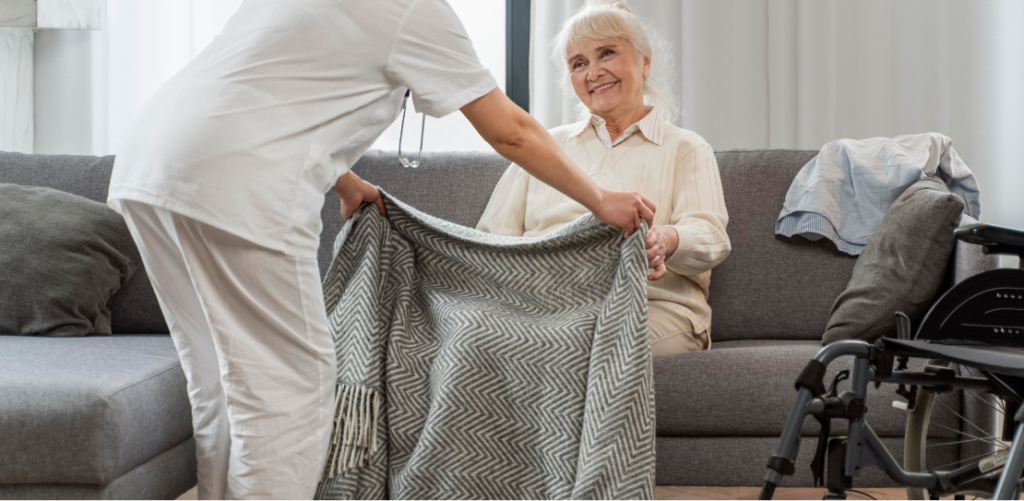Understanding the Role of a Domestic Abuse Advocate
A Domestic Abuse Advocate plays a crucial part in supporting survivors as they work to reclaim their lives after experiencing violence. Unlike counselors, who focus on therapy and mental health treatment, advocates are trained to assist survivors with immediate needs, such as creating safety plans, securing shelter, and navigating the legal system. Advocates offer practical solutions and emotional reassurance during times of extreme vulnerability. Their main goal is to empower individuals by offering resources, information, and support, rather than making decisions for them. Survivors often face overwhelming choices, and having a compassionate, knowledgeable advocate by their side makes a significant difference. Advocates respect survivors’ autonomy and guide them toward self-determined paths forward. Without the critical work of domestic abuse advocates, many survivors would face these challenges alone, increasing their risk of further harm.
The Critical Skills Every Domestic Abuse Advocate Must Have
Excelling as a Domestic Abuse Advocate requires a unique blend of skills and personal qualities. First and foremost, strong communication and active listening abilities are vital. Survivors need to feel heard without judgment, and advocates must listen attentively to understand the survivor’s needs fully. Crisis intervention techniques also play a critical role, helping advocates respond calmly and effectively during emergencies. Cultural sensitivity and the application of trauma-informed care are essential to ensure that all survivors, regardless of background, receive respectful and appropriate support. Confidentiality stands at the core of advocacy work, safeguarding survivors’ safety and privacy. Ethical boundaries must also be maintained to ensure professional, non-exploitative relationships. A dedicated advocate continually develops these skills to remain effective, compassionate, and reliable in the often high-stress environment of domestic violence support services.
How Domestic Abuse Advocates Support Survivors
The work of a Domestic Abuse Advocate extends far beyond offering a listening ear. One of the key services they provide is assisting survivors in creating detailed safety plans, helping them anticipate potential dangers and establish steps to remain safe. Advocates often accompany survivors to court hearings, offering both emotional support and help in understanding complex legal procedures such as obtaining restraining orders. Housing is another area where advocates make a substantial impact, whether by securing space in shelters or arranging long-term housing solutions. Medical care is another critical concern; advocates help survivors access healthcare services and mental health counseling suited to their needs. They also connect survivors with financial aid, job training programs, and educational opportunities to foster long-term independence. By offering comprehensive, wraparound support, domestic abuse advocates serve as a lifeline during some of the most challenging times in a survivor’s life. Their ongoing support can be the difference between someone feeling isolated and someone finding a path toward rebuilding.
The Journey to Becoming a Domestic Abuse Advocate
Becoming a Domestic Abuse Advocate is a path that calls for commitment, education, and empathy. Many advocates begin with a degree in social work, psychology, criminal justice, or a related field, although formal education isn’t always a requirement. Training programs offered by domestic violence organizations often serve as an entry point, where individuals learn about legal rights, trauma response, and crisis counseling. Volunteer work and internships are highly valuable for gaining real-world experience and building practical skills. Certifications, such as those offered by the National Advocate Credentialing Program (NACP), add professional credibility and open doors to more advanced roles. Many advocates engage in continuing education, attending seminars and workshops to stay updated on best practices and changes in the law. The work demands both emotional resilience and a deep belief in the survivor’s right to safety and justice. Those who answer this calling often describe it as one of the most rewarding professions, despite its challenges.
Common Challenges Faced by Domestic Abuse Advocates
The role of a Domestic Abuse Advocate is emotionally intense and presents unique challenges. Secondary trauma, or the emotional duress resulting from hearing about others’ traumatic experiences, is a real risk that advocates must actively manage. In many cases, systemic barriers within the legal system, law enforcement, or healthcare can make it harder for advocates to secure timely assistance for survivors. Advocacy burnout is another significant issue, with prolonged exposure to high-stress environments leading to physical and emotional exhaustion. Recognizing the signs of burnout—such as irritability, fatigue, and detachment—is crucial for long-term sustainability in the field. Organizations that employ domestic abuse advocates often emphasize self-care practices, peer support groups, and professional counseling to mitigate these risks. Advocates also need to strike a delicate balance between being empathetic and maintaining professional boundaries. Despite these challenges, many advocates remain fiercely dedicated to their mission, finding strength in the resilience of the survivors they support.
How to Find and Connect with a Domestic Abuse Advocate
Finding a skilled Domestic Abuse Advocate can make a world of difference for those seeking help. Local domestic violence organizations typically maintain a staff of advocates available to assist survivors at any time. Hotlines such as the National Domestic Violence Hotline offer immediate access to advocates who can provide crisis intervention and connect callers to local resources. Many communities also have domestic violence resource centers or shelters that offer in-person advocacy services. Online directories from reputable organizations make it easier than ever to find help tailored to specific locations or needs. When reaching out to an advocate, it’s important to ask about their experience, areas of expertise, and the types of support they offer. Survivors should feel safe and respected in these initial conversations, with advocates prioritizing confidentiality from the outset. Building trust and finding the right advocate is a key step toward regaining control over one’s life and moving forward after abuse.
Why Community Awareness About Domestic Abuse Advocacy Matters
Raising community awareness about the work of a Domestic Abuse Advocate is vital for creating a safer, more informed society. Too often, domestic violence remains hidden due to shame, fear, or misunderstanding, and advocates play a central role in bringing these issues to light. When communities understand the dynamics of domestic violence and the critical role advocates play, they are better equipped to support survivors compassionately and effectively. Public education campaigns, workshops, and partnerships with schools and workplaces help to spread this knowledge. Communities that champion advocacy initiatives also help reduce the stigma surrounding domestic abuse, encouraging more survivors to seek help. Bystanders who are educated about domestic violence are more likely to intervene safely and supportively when they recognize warning signs. Advocacy doesn’t end with professional advocates—everyone can contribute to building a network of safety and support. Awareness fosters empathy, and empathy drives meaningful change in the lives of survivors everywhere.
Frequently Asked Questions (FAQ)
What qualifications are needed to become a domestic abuse advocate?
Most domestic abuse advocates have a background in social work, counseling, criminal justice, or psychology. However, many organizations offer specialized training programs for those passionate about the field, regardless of prior education. Certifications like those from the National Advocate Credentialing Program (NACP) are highly regarded.
How do domestic abuse advocates protect survivor confidentiality?
Advocates are bound by strict confidentiality policies to protect the privacy and safety of survivors. Information shared is kept private unless the survivor consents to disclosure or unless required by law, such as mandatory reporting situations involving minors.
Is there a difference between a domestic abuse advocate and a legal advocate?
Yes, a domestic abuse advocate focuses broadly on supporting survivors emotionally and practically, while a legal advocate specializes in helping survivors understand and navigate legal processes like restraining orders and custody issues.
Can a domestic abuse advocate testify in court?
Typically, domestic abuse advocates do not testify in court to preserve confidentiality and the trust built with survivors. However, some legal advocates, under specific circumstances and survivor consent, may provide affidavits or testimony.
How can I support the work of domestic abuse advocates even if I am not one?
Community members can support advocates by volunteering, donating to domestic violence organizations, participating in awareness campaigns, and educating themselves and others about the realities of domestic abuse.











